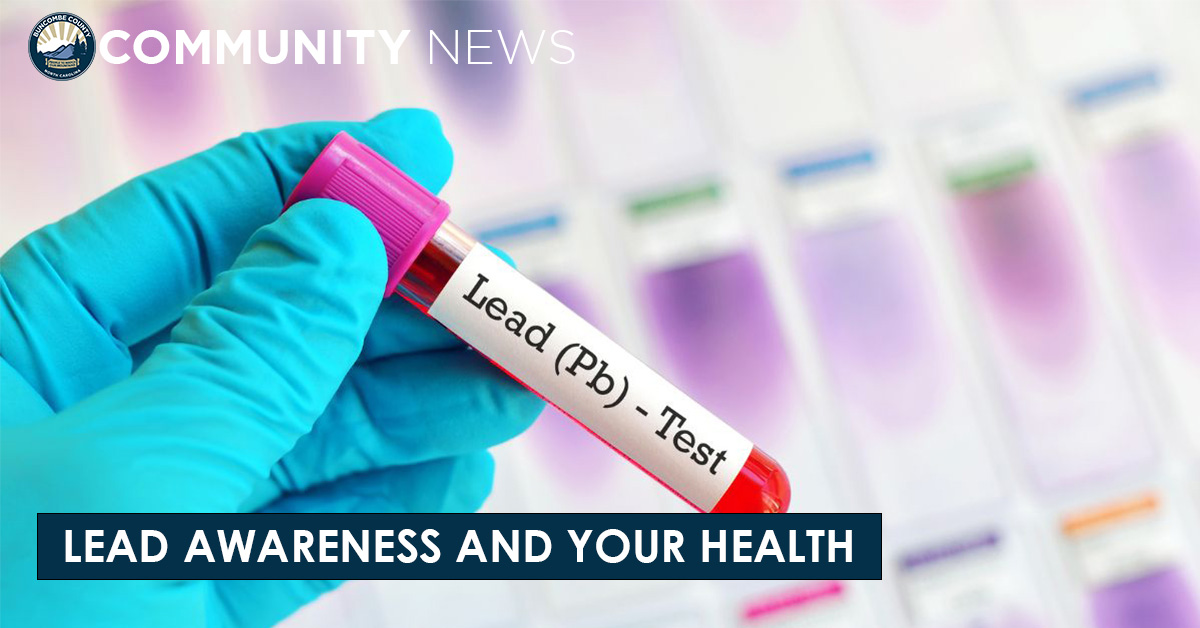
Buncombe County Public Health is providing the following resources from trusted experts to help the public understand lead, lead exposure, and how to reduce exposure. Lead awareness is important for everyone, especially children under 6 years of age, pregnant people, and breastfeeding people.
If you are concerned, you have been exposed to lead:
- Consult with your healthcare provider for blood lead testing.
- If you do not have a doctor, you can call the Buncombe County Blood Lead Information Line at 828-250-5205.
- Callers can leave a message, and a public health nurse will call back as soon as possible.
Lead Resources:
Actions to reduce lead exposures
Prevent lead in Children- NCDHHS
Basic Information about Lead in Drinking Water
10 steps to make your tap water baby safe
Protect your tap- A quick check for lead
Identifying your water service line material- City of Asheville
Free lead test from the City of Asheville